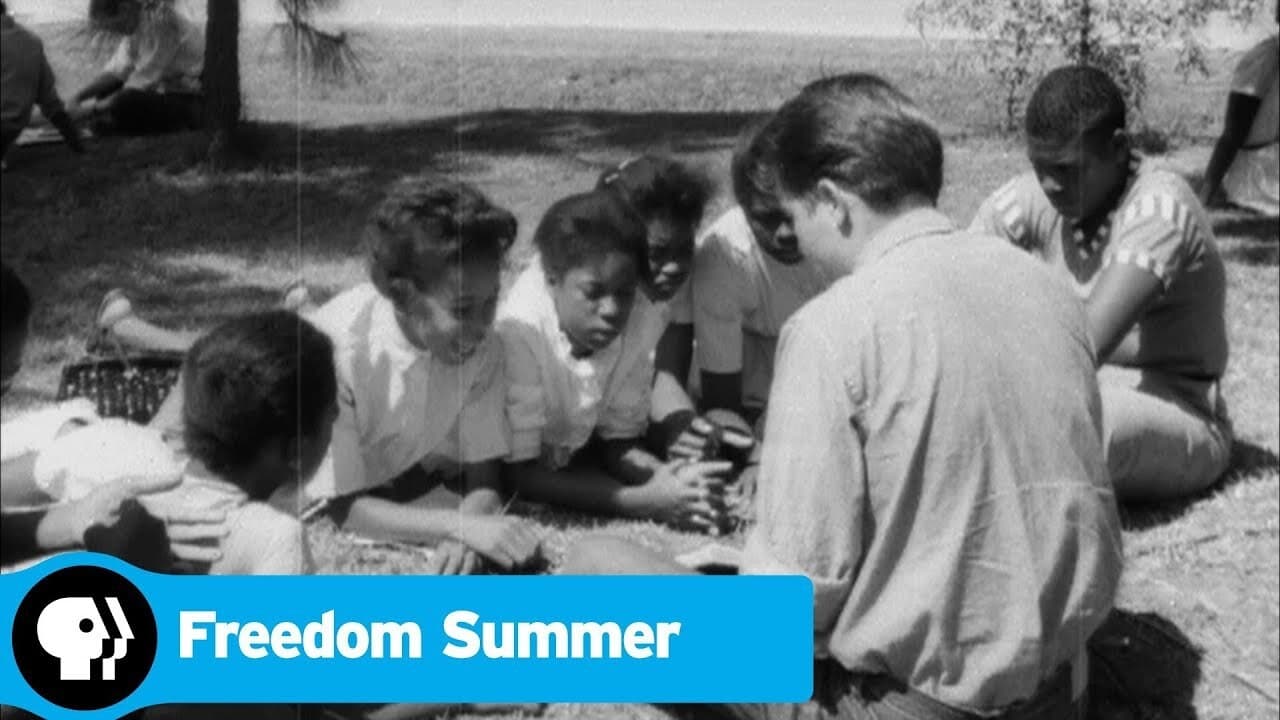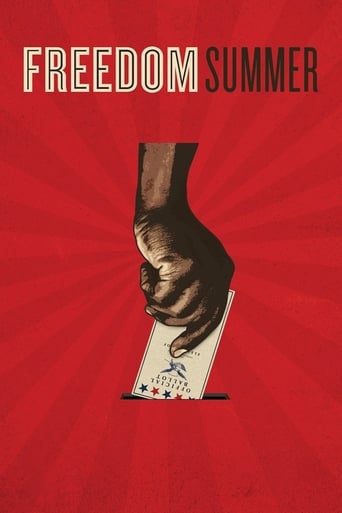

As a white Virginia high school student in 1964 I recall being inspired to hear that young people from all over the country were going to Mississippi to help register Black people to vote, and even more I recall being shocked and outraged to hear that they were being beaten, arrested and even killed. This movie, though interviews, documentary footage, photographs and drawings, brings all of this alive in a moving and powerful way. You meet the young people themselves, black and white, and find out why they did what they did, how it effected them and how it helped to change history. This is not a stuffy history lesson, but a true story bursting with life about people fighting for a better world.
... View MoreUltimately, documentaries are about, clearly, documenting something. And, of course, this is most useful when what you're documenting isn't something that's commonly known, or the perspective is unique and valuable. This film does all of that, and it's the first time I've ever watched a film where at the end, I could hear multiple people talking about the things they didn't know about until watching this, and were surprised they didn't know about. Being that clear a conduit of information is, alone, a great mark of how good this film is.The focus is on the summer of 1954 when college students flooded into Mississippi to help African-Americans register to vote, make up for deficiencies in education with Freedom Schools, and attempt to replace the all-white delegation to the Democratic National Convention with an integrated delegation from the Mississippi Freedom Democratic Party, started that summer.The story is told not just with stock images, and video and audio recordings that are extremely eye-opening, but by a great selection of interviews. There's a good balance of interviews with black organizers in Mississippi, black supporters in the South (such as those that provided places to stay), organizers outside Mississippi, and both black and white participants in Freedom Summer, as well as a member of the Citizens' Council, a dominant force in Mississippi to preserve segregation and stop black citizens from being allowed to exercise their right to vote. The story is told in such a way that it really does feel like they capture all sides of this, both the inner conflicts with the different groups within the Freedom Summer, how the activists interacted with the black Mississippians, and how all these groups faced the threats posed by the dominant portion of the white population trying to preserve the status quo.The way it covers all this really is powerful, and the emotions that come from many of the interviews are very raw, and at points very honest. I really do like how often interviewees talked about not just their experiences, but compared and contrasted them quite interestingly, and it paints this great detailed picture about the dynamics in Mississippi in 1964, as well as the politics and risks of the situation.I walked out feeling like I understood so much more about what happened, and realizing that it's an absolute shame that so many of these things were stuff that I've never come across, and clearly so much of the audience hadn't, but at least these stories are being told now. An exceptionally informative film, as well as very powerful.
... View More